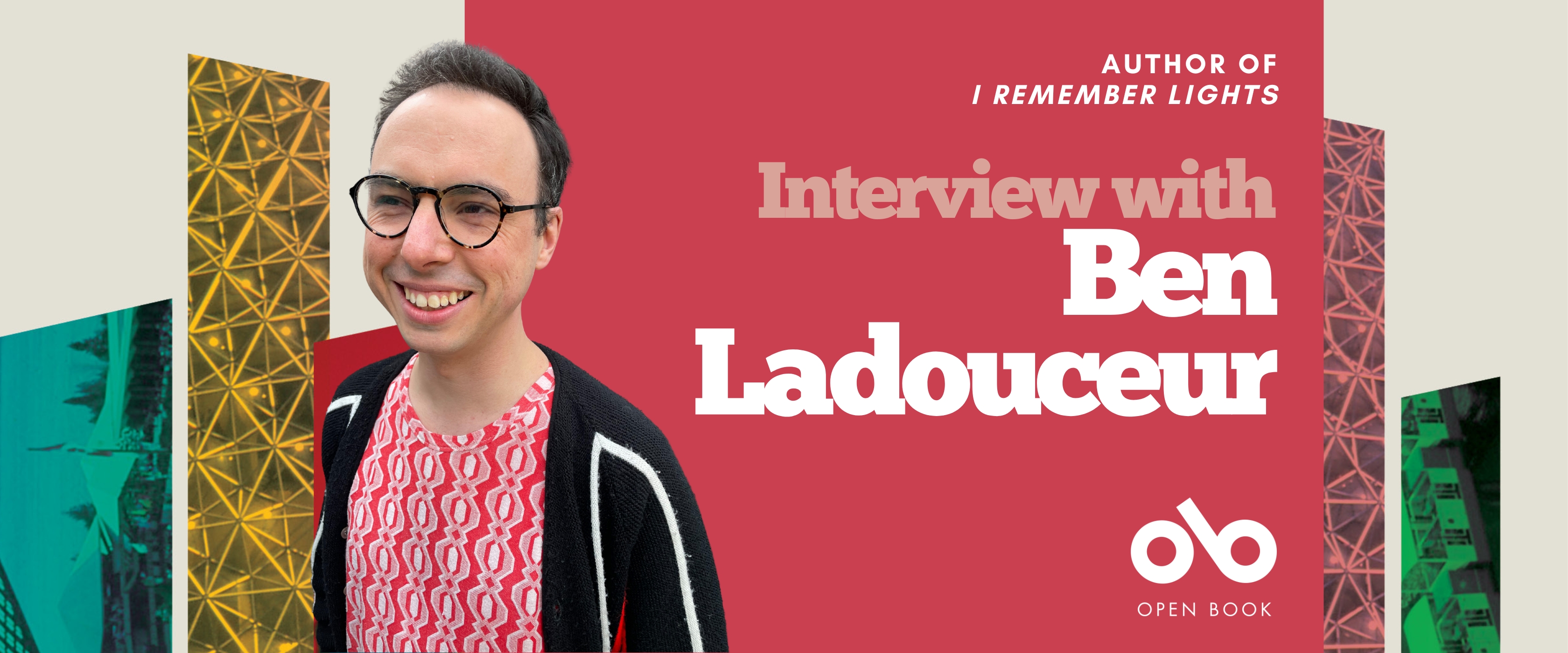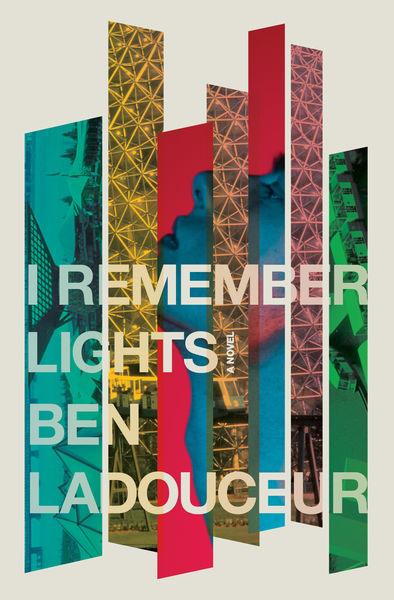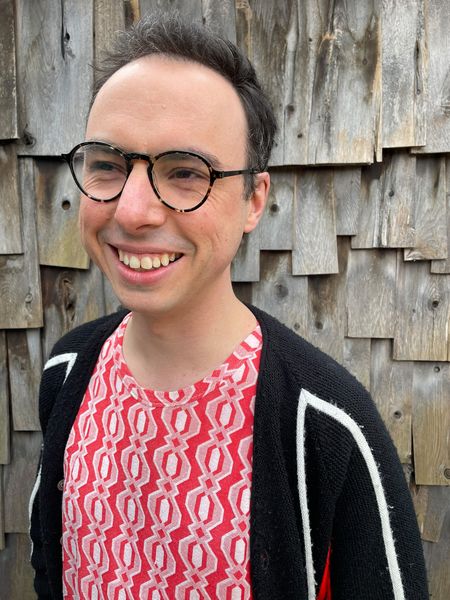Ben Ladouceur's Eagerly Awaited Debut Novel Depicts the Optimism of Queer Life During Montreal's Expo 67
With so many communities wondering what there futures hold in this modern world, it's always interesting to look back at very specific moments in the history or a people or a country and remember what emotions, fears, hopes, and dreams were in the minds of those living in a bygone time of flux and change.
Award-winning poet Ben Ladouceur does exactly that in his captivating debut novel, I Remember Lights (Book*hug Press). The story transports readers back to the summer of 1967 in Montreal, and into the lives of young men who are learning about gay life and the nuances of that specific community. This is all set against the backdrop of Expo 67, a spectacle that only added to the enthusiasm and optimism of our protagonist and his new-found partner.
But, as is always the case, this moment passes and the reality of these lives set in. As time passes for these young men, all of the risks and dangers that counterbalance the joys of Queer life come into stark relief, punctuated terribly by the notorious 1977 police raid on a gay bar called Truxx.
This visceral and heartfelt exploration of a unique and often forgotten era is depicted with great skill by Ladouceur, and we're super-thrilled to share this Long Story Novelist interview with the author on Open Book!
Open Book:
Do you remember how your first started this novel or the very first bit of writing you did for it?
Ben Ladouceur:
Back in university I tried really hard to write an essay about Expo ’67 for a class, and it just didn’t come together. My paralysis confused me, until I realized that I didn’t want to write an essay about Expo at all. I wanted to write a novel about Expo. But I was a student, and in my writing I was really focused on poetry, and I thought, “I probably don’t have time to write a whole novel right now. I hope I remember later.” A decade passed and then I did remember.
OB:
Did you find yourself having a favourite amongst your characters? If so, who was it and why?
BL:
Once I decided I was going to write a novel, I also decided that it would feature a love story. The character Tristan, who ignites that love story when he shows up, is probably my favourite character, because in many ways he gave the book its real soul.
Your CanLit News
Subscribe to Open Book’s newsletter to get local book events, literary content, writing tips, and more in your inbox
OB:
Did you do any specific research for this novel? Tell us a bit about that process.
BL:
When I started writing the book, I knew enough about Expo to just get going, because I had a long-standing, nerdish fascination with it. A lot of the work was a matter of confirming dates and times, locations of the different pavilions, key facts like that. Like many Ottawa people, I had visited Montreal a lot, and before beginning the book, I had already gone to St. Helen’s Island to see old Expo buildings and relics. Once I was working on the book, I took a day off work and made a there-and-back trip to visit the islands again – and to take the fantastic guided tour of Habitat ’67, which I recommend to anyone.
I read the books people were reading in the 60’s – not just the ones that have stood the test of time, but also the bestsellers that have sort of been forgotten. I especially read a lot of the science fiction from that time, because one of my main characters was a sci-fi geek. Robert Heinlein, Samuel Delany, Poul Anderson. I watched lots of movies and TV shows from the 60’s, all pretty easy to find on YouTube. I played a lot of James Brown, Cass Elliot, Dionne Warwick – bliss. I bought old magazines on eBay. A friend gave me a very useful “Conspectus of Canada” published by the Royal Bank of Canada in ’67.
In addition to exploring Expo, the novel depicts a 1977 raid on a Montreal gay bar called Truxx, during which over 100 gay men were arrested, jailed overnight, and subjected to humiliation. After I finished the first draft, it was clear that this event couldn’t just be a little coda to the story. I had to go into detail about it, and to get it right. There was little information available about it, so I did a lot of outreach. A film professor sent me a short documentary about the raid, which I was aware of but could not find publicly. I also made a connection with two of the raid’s victims, and with the lawyer who represented the men and helped them get acquitted of criminal charges. Over Zooms and coffees, these men provided incredible, valuable insights. I am extremely grateful to them. The novel toggles between ’67 and ’77, and the ’77 strand tells the story of that horrible, forgotten night in Canadian history, pretty much beat for beat. I could only have done that with firsthand information from men who were there.
OB:
What was the strangest or most memorable moment or experience during the writing process for you?
BL:
A few months into this book, I got to a specific part of the story and thought, “There’s a lot left, but when I finish this part, I will know what to do next, and I’ll keep knowing what to do.” I had made several attempts at novel-ish things at that point, but I suddenly knew this one had legs. I would finish it, I would be happy with it, it would be a novel. In that moment I felt like a superstar, whereas so much of writing is feeling like a worm.
It sounds so dumb but honestly that realization was just a great, happy moment from my life that I will never forget. That night, I was unable to sleep, and later I reminded myself not to write late at night, because that kind of thing might happen again and mess up my sleep. What’s funny is that during my thrilling, world-shaking epiphany, I just looked like a guy using a computer. If someone saw me through the window, they might have thought I was doing emails.
OB:
Did you celebrate finishing your final draft or any other milestones during the writing process? If so, how?
BL:
After the final copyedit, I went to a cocktail place with three of my favourite people and we did a little toast. We had wanted to try the place for a while because there’s a taxidermy peacock in the window. It was packed in there, and I almost knocked a stranger’s drink over, carrying around my gigantic winter jacket. Her wineglass moved (!) but it did not topple.
__________________________________
Ben Ladouceur is the author of Otter, winner of the Gerald Lampert Memorial Prize, finalist for a Lambda Literary Award, and selected as a National Post best book of the year, and Mad Long Emotion, winner of the Archibald Lampman Award. He is a recipient of the Writers’ Trust of Canada’s Dayne Ogilvie Prize for LGBTQ2S+ Emerging Writers and the National Magazine Award for Poetry. His short fiction has been featured in the Journey Prize Stories anthology and awarded the Thomas Morton Prize. He lives in Ottawa.







